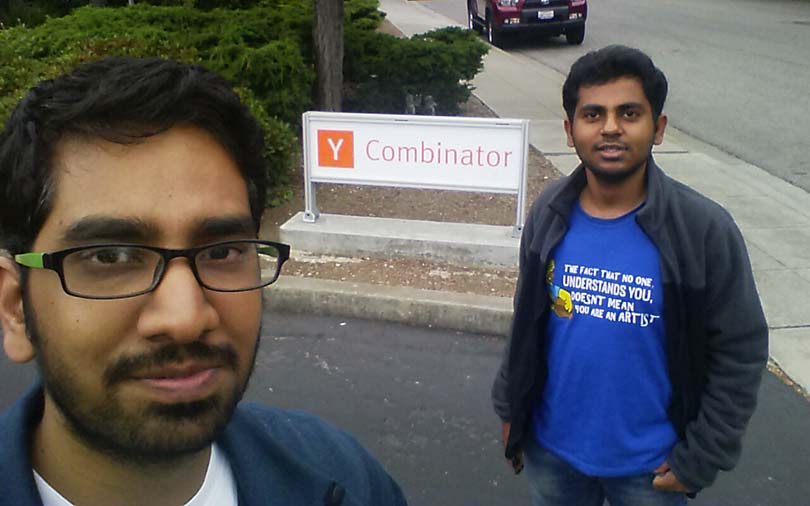
Cashfree wants to catch the eye by being more than a payment gateway


Reeju Datta and Akash Sinha met through a mutual friend in Bengaluru in early-2015. At the time, Datta was a marketing executive at home furnishings firm FabFurnish.com while Sinha worked with e-commerce giant Amazon as a software engineer. The duo got talking about startups.
“We were bouncing a few ideas off each other and discussing spaces like logistics, B2B, and e-commerce. But payments became a common thread,” Datta told TechCircle.
They came to the conclusion that fintech was something that formed the backbone of every other sector and that many cash-related problems needed to be solved. This was well before the advent of demonetisation.

“We both came from e-commerce backgrounds and we had some understanding of digital payments. We knew that it was something which would take off in the future and form an integral part of every business,” he said.
Later that year, Datta and Sinha left their jobs to start a fintech startup they named Cashfree. They set about building an alternative software solution to point-of-sale (PoS) devices in cases where customers wanted to pay for items only at the time of delivery. Essentially, Cashfree would send a link to the customer’s mobile phone and the person would be able to pay by card or Paytm at their doorstep.
Merchants then urged Cashfree to offer them a full-fledged online payment gateway along the lines of a PayU or CCAvenue, which enabled multiple modes of collecting payments and authorising transactions between merchants and customers.

“We felt that it was a natural extension of what we were already doing,” said Datta, a graduate of Indian Institute of Technology-Kharagpur.
New avenues
At this point, Cashfree was only in the business of collecting payments. They soon discovered that businesses also had another pain point - bulk disbursals.

“We realised that there were a few cases around disbursing payments especially in bulk [such as daily salaries, expenses and vendor payments], for which banking portals were the only available solutions,” said Datta.
Partially drawing on their own experiences, they found that the process of bulk payouts using corporate bank accounts was cumbersome and error-prone with no automation facility for frequent disbursals.
"We ourselves were particularly dissatisfied with the online bank portals we had to use everyday while operating the payment gateway. Hence, after talking to banks, we created a simple and automated way to do bulk payouts for a business,” Datta said. “Our ‘Smart Payout’ offering allows businesses to automatically pay other vendors, essentially automating outward bank transfers.”

By sending money to any bank or Unified Payments Interface-based wallet, this solution helps e-commerce companies that are processing funds for cash-on-delivery, or firms like Swiggy or Uber who would like to pay the salaries of their drivers/delivery persons once the service is completed, he added.
Simply put, Cashfree has evolved into a payment gateway that helps Indian businesses both collect and disburse payments via more than 100 payment methods including credit/debit cards and UPI.
“We are now a bulk payouts and payment gateway company,” said Datta, adding that Cashfree is the only player offering this combination. “Payouts constitute the larger share of our business and we have become payout-first company.”

Next steps
Today, the startup claims to have signed up more than 5,000 merchants with a run rate of $1 billion in terms of annual processing volume. Cashfree currently processes more than four million transactions every month. It counts Google-backed Dunzo, donation platforms like Ketto and Milaap, and gaming site RummyCircle among its clients.
The firm earns via a percentage-based fee on every transaction.

“Last year, we made revenues of more than $1 million, which has grown this year and are expecting to grow five times year-on-year,” said Datta.
Through its auto-collect facility, it also resolves inward bank transfers paid by customers or vendors, automating bank transfers through NEFT/IMPS.
“Auto-collect is a virtual collect which is mapped to your bank account. Sharing bank details also creates a security risk for the business. Therefore, we create a separate account number for every customer or vendor. So when there’s payment on the platform, Cashfree recognises the customer and updates the system in real time,” Datta said.
Additionally, Cashfree also launched an instant refund facility last month.
“Other gateways take seven to ten days to provide instant refunds. We let the business send a link to the customers, where customers enter their bank details and get their refunds,” he said.
After being incubated by digital payments giant PayPal, Cashfree also caught the eye of Y Combinator. It received $120,000 in seed funding from the Silicon Valley-based accelerator and was part of its summer batch last year.
It is now in the market to raise a Series A round in the ballpark of $4 million.
“Some conversations are going on — mostly with the existing investors — and we’ve got some inbound interest from new domestic and foreign institutional investors,” Datta added.
The company claims to be profitable and its headcount has risen from five to 25 over the past year.
“When we started, Akash and I invested Rs 4-5 lakh and that kept us growing for one-and-a-half year,” said Datta. “We were profitable even while we were bootstrapped.”
